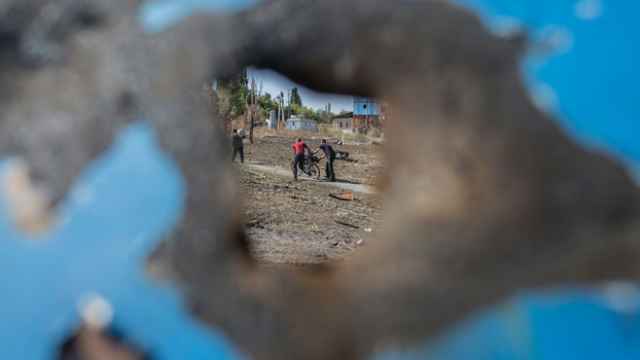Russia is among several big exporting nations to have broken a pledge to fight corruption in global trade, a report by Transparency International (TI) showed Thursday.
The Berlin-based anti-corruption watchdog named Russia, Japan, the Netherlands, Greece and Brazil among the worst offenders to have signed an anti-bribery convention and failed to implement it.
Corruption in trade is undermining global development as contracts don't go to the best suppliers, prices are being inflated to cover bribe payments, environmental requirements are not being enforced and taxes are not being collected, it said.
To tackle this problem, the Paris-based Organization for Economic Cooperation and Development (OECD) adopted the Convention on Combating Bribery of Foreign Public Officials in International Business Transactions in 1997.
Widely seen as an important instrument in the drive to curb global corruption, the treaty requires the 41 signatory countries to make foreign bribery a crime for which individuals and enterprises can be made responsible.
These countries are responsible for around two-thirds of global exports and almost 90 per cent of total foreign direct investment outflows.
However, 22 signatories have done little or nothing to enforce the treaty, said TI's annual report on the issue.
"As a result, the convention's fundamental goal of creating a corruption-free level playing field for global trade is still far from being achieved," the report said.
Among those with little or no enforcement were Japan, the Netherlands, South Korea, Russia, Spain, Belgium, Mexico, Brazil, Ireland, Poland, Turkey, Denmark, the Czech Republic, Luxembourg, Chile and Israel, said TI.
It said others, including France, Sweden, South Africa and New Zealand, were only enforcing the convention in a "limited" way.
In its assessment, the group said only four OECD countries were actively enforcing the anti-bribery convention: the United States, Germany, Great Britain and Switzerland.
The non-governmental organization urged exporting countries to take a tougher stance on bribery. "In countries with lagging enforcement, governments should provide adequate support, including staffing and funding for enforcement," it said.
TI called on laggard countries to provide adequate support, including staffing and funding for enforcement and said rigorous OECD monitoring was essential. It also recommended that the OECD meet officials in countries with substantial foreign bribery.
A Message from The Moscow Times:
Dear readers,
We are facing unprecedented challenges. Russia's Prosecutor General's Office has designated The Moscow Times as an "undesirable" organization, criminalizing our work and putting our staff at risk of prosecution. This follows our earlier unjust labeling as a "foreign agent."
These actions are direct attempts to silence independent journalism in Russia. The authorities claim our work "discredits the decisions of the Russian leadership." We see things differently: we strive to provide accurate, unbiased reporting on Russia.
We, the journalists of The Moscow Times, refuse to be silenced. But to continue our work, we need your help.
Your support, no matter how small, makes a world of difference. If you can, please support us monthly starting from just $2. It's quick to set up, and every contribution makes a significant impact.
By supporting The Moscow Times, you're defending open, independent journalism in the face of repression. Thank you for standing with us.
Remind me later.






